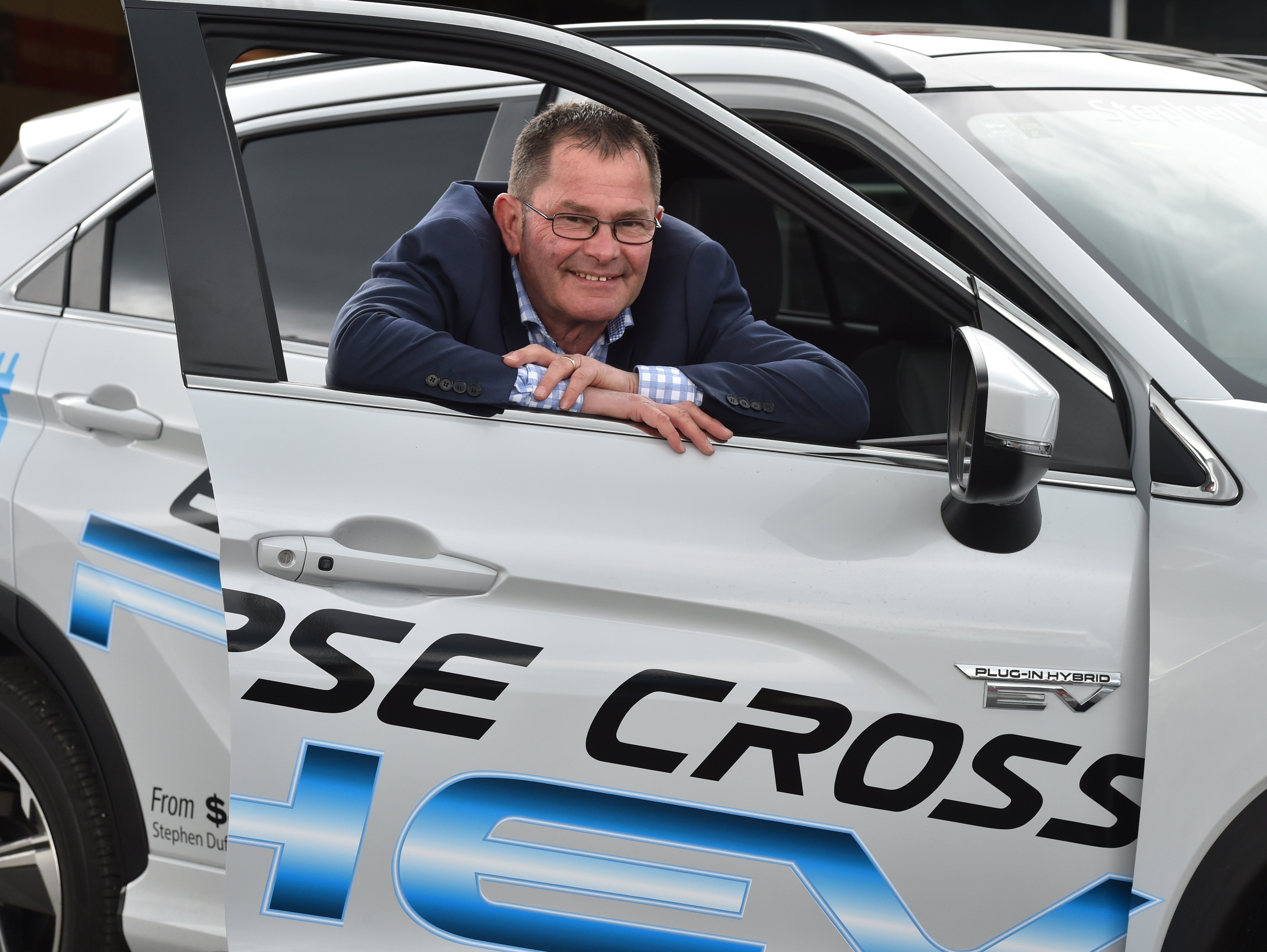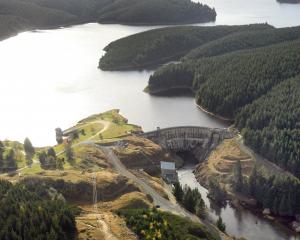
The Government introduced a subsidy from July 1 to make new EVs thousands of dollars cheaper and petrol and diesel vehicles more expensive.
The scheme came after recommendations from a Climate Change Commission report looking at bringing New Zealand closer to its emissions target.
Under the scheme, buyers can save $8265 on the cost of new electric and some hybrid vehicles and $3450 on used electric cars.
From January next year, people seeking to buy petrol and diesel vehicles will have to pay another $3000 on top of the price of the vehicle because it operates on fossil fuels.
Stephen Duff Motors owner Stephen Duff said demand had soared for new EVs after the announcement.
The business had sold 12 since July 1.
"Sales for hybrid and electric cars had been building for about a year prior to the government scheme, but the subsidy has certainty made a difference.
"It is the way of the future and people are starting to see that," he said.
While the cars were selling, supply chain issues were leading to at least a month’s delay in getting them.
A shipment of Mitsubishi EVs due to arrive in the country this month had all been sold in advance. The next shipment of cars that was still available was scheduled to arrive mid-August.
Director of Dunedin car yard Auto Court, Nelson Cottle believed the scheme had definitely created more interest in EVs and they had sold "a few".
The yard’s main focus was on second-hand EVs.
He believed the intention of the subsidy was right, but the implementation was not.
The current subsidy extended only to full EVs and plug-in hybrids, but did not take in the non-plug-in hybrids until next year.
That had "stalled" the sales of the non-plug-in hybrids and one customer had pulled out to wait for the rebate, Mr Cottle said.
"We have a reasonably large stock of non-plug-ins and they are going slower than usual.
"I don’t anticipate an improvement until the rebate is applied to them next year," he said.
Mr Cottle said while fresh imports and new EVs were covered by the subsidy, previously registered EVs were not.
That meant it was devaluing any registered stock a dealer had and also devalued by the amount of the subsidy any EVs the public might want to trade in, he said.
Buying stock from Japan to meet the increase in demand since the announcement of the subsidy was also proving difficult.
The vehicle price in Japan had "dramatically" jumped, which was combined with a recent increase in shipping of around $300 per unit and in some cases additional storage fees in Japan, due to the international shipping shortage.
Mr Cottle believed that would cause a substantial price increase for future arrivals of secondhand imported EVs and plug-in hybrids.
"So we are up against quite a few things at the moment," Mr Cottle said.
Comments
All this encouragement into Electric Vehicles and the Government still has not explained how it is going to maintain road tax nor explained where the electricity is to come from when motoring as usual in New Zealand will require we install extra capacity equal to 120% of total hydroelectricity usage today just to power transport.
Well said - sick of this Government having these so-called bright ideas which are not thought through and have many flaws. They also forgot to mention the battery disposals, just like Hawkins is doing to Dunedin - creating havoc and will leave it to others to sort.
The interviewee in the article Nelson Cottle seems to think that subsidies would apply to non-plug in hybrids next year. I don't think that is the case and would hardly make any sense as that type of car is merely a petrol powered car with slightly increased efficiency.
@Jorge - The rather misleading way you word and present your statistic would perhaps better be stated as a 20% increase from current electricity usage. The overall capacity need not increase as the grid is designed for peak demand. Given that EVs mainly charge overnight (often in the small hours taking advantage of the very cheapest rates), the majority of extra usage would be outside peak demand times. Also, the Government has explained their plans for road user charges for EVs, which as a further incentive have been put off until 2024.
@Since Left - New Zealand is behind the curve on EV adoption compared to other countries despite being extremely well suited for widespread usage. The batteries have a potential lifetime which far exceeds usage in cars, in any case, manufacturers are being made responsible for the lifecycle of batteries which is already resulting in them being almost completely recycled.
Of course NZ isn't well suited to EV use. We don't have the infrastructure and at the moment EVs are useless for most needs, unless you live in a large city. Most batteries are not recycled, about 2% at the moment but that should change. Worth having a look at the environmental damaged being caused by lithium and other rare metal mining. Projection is we will need as much copper in the next 30 years as we have used since we discovered it, now that should be fun.
Roll on the hydrogen vehicles which will destroy the EV market.
Article in Stuff this morning, 'Most New Zealanders would not consider an EV for their next car'.
Seems they have more sense than the govt.
The article you refer to makes interesting reading if one cares to read past the headline you will discover:
- 45% of all respondents to the survey were open to the possibility of an EV being their next vehicle
- It was only amongst Gen X & Baby Boomer respondents where less than 50% would consider an EV as their next vehicle
- The survey was made prior to the announcement of the Governments latest incentives
It was a well written article, with perhaps a slightly misleading headline. Also of note were the readers comments which are mostly in favour of EV adoption.
How will these electric cars manage in New Zealand's inclement weather? (stormy, wet conditions) You are driving somewhere in the country and discover a slip has blocked the road, you are three-quarters of the way through your battery, what then... You are stuck in a traffic jam in similar weather conditions and have the heater on to keep warm, you are still many miles from your destination...












